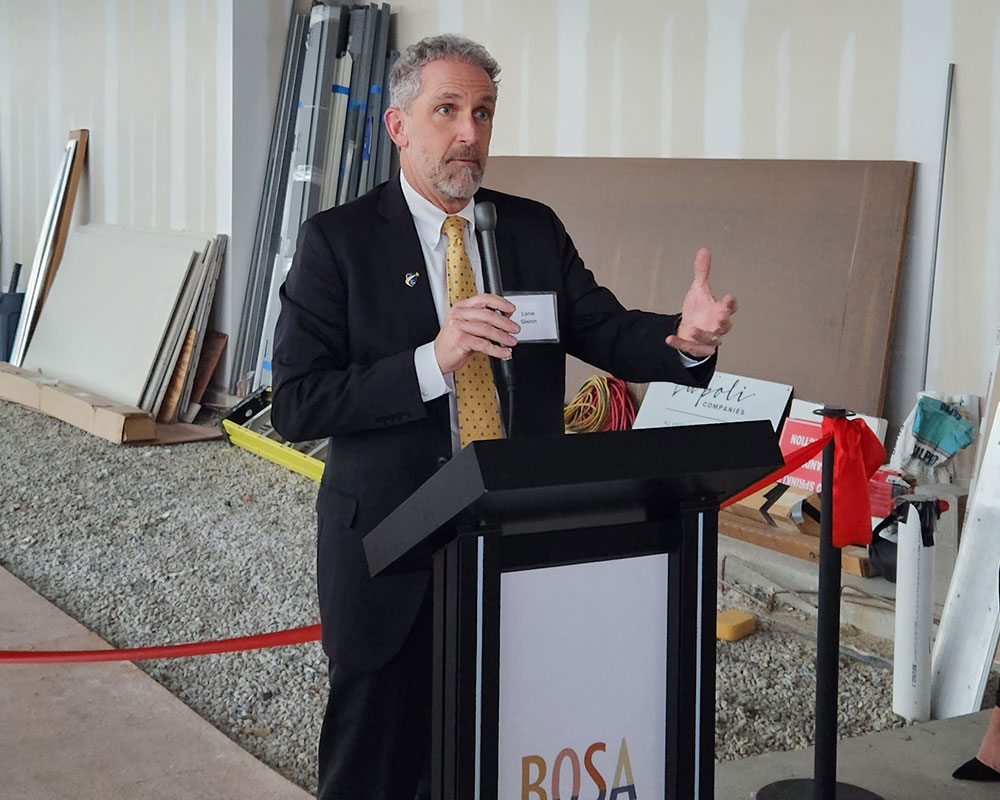As a program at Haverhill High School that makes college classes available has come under scrutiny in recent weeks, early college defenders say it is still delivering on its original promise to encourage students who may not have thought college was right for them.
Last month, as WHAV reported, student council members told the Haverhill School Committee those who would benefit the most are not gaining access. Haverhill High partners with Northern Essex Community College. In their telling, high-achieving kids flooding the program have disrupted its goal to assist students who do not believe they can get into, afford, or thrive in college. Moreover, they said the schools the high-achievers want to attend do not accept early college credits.
President of Northern Essex Lane A. Glenn pushed back at last week’s meeting, arguing that Massachusetts law requires state schools to accept early college credits, which he said 75% of the 2022 Haverhill high graduating class attend. He said roughly 24.5% go to private schools, with a small proportion enrolled in the highly selective institutions student council members pointed to. Massachusetts also allows community college students to continue onto any state university—without going through an application process—after finishing their two-year associate’s.
After member Yonnie Collins raised the student council’s main critique, that fewer of the students who would benefit the most are enrolling, Glenn responded the state mandates the program be made equally available to all students at Haverhill High.
Addressing worries that early college was damaging the high school’s Advanced Placement—or AP—program, Glenn pointed out that “AP credit is not the guaranteed transfer credit that many people think it is.” When asked by committee members to compare AP curricula to those of early college courses, he said that while the rigor is the same, early college provides more support to “ease the transition to college.” He could not speak to specific ways the curricula diverged, and said he believes AP courses are a valuable resource.
In recent years, Glenn explained, early college has become a significant piece of the state’s strategy to get more kids into college. Projections show the state’s workforce will be short 200,000 college degrees by 2030. Describing the extent of the state’s ambition, he said the Massachusetts Alliance for Early College, for example, aims to increase involvement from 4,500 students a few years ago to 45,000 a few years from now. He added that increasing enrollment is particularly important in Haverhill.
“Haverhill doesn’t have the same percentage of college-educated adults that the state does,” he said. “Massachusetts is the most highly educated state in the country—you surely know that. Nearly half of our adults have a bachelor’s degree or higher… Many of the students who attend, most of the students, in fact, who attend public colleges and universities in Massachusetts stay in Massachusetts, and they stay near the communities where they’re from.”
Lana Viola, a policy fellow for the organization Glenn mentioned, told WHAV early college was key to her gaining the self-confidence to continue her education beyond her Computer-Aided Design and Drafting certification from Whittier Regional Vocational Technical High School. Not learning much about the college application process at home, she said academic advisors at Northern Essex filled in the blanks.
She learned to take the initiative to, for example, ask to take summer classes at Northern Essex through early college. She then earned enough credits to qualify for the Promise Scholarship Program, which means she is now attending the community college for free. Common stumbling blocks that discourage first-years, like how to order textbooks, where to get advice on financial aid, and how to schedule classes, she said she navigated with ease.
While she did not enjoy the rigid structure of her high school classes at Whittier—she described them as “kind of like prison”—she thrived in the interactive structure of a psychology class, her favorite early college course. The professor encouraged collaboration and discussion.
In high school courses, she said “it was always, you just stayed in the classroom, you sat down at the desk, you listened to the teacher talk, maybe occasionally they showed a video and then you just read the book, do the worksheet—[go on to the] next chapter. But college, I feel like, integrates everything. [The professor] didn’t want us just sitting there reading. No, that’s boring. She wanted us to get up and move.”
This fall, she plans to enroll in University of Massachusetts Lowell to earn her Bachelor’s in civil engineering.

